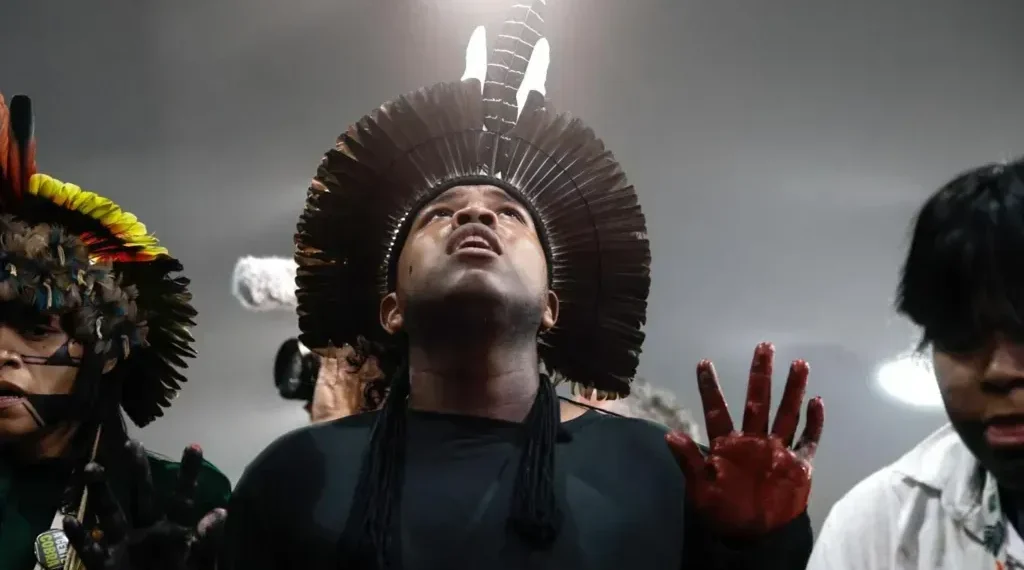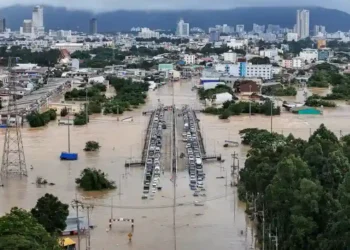UN Climate Talks in Brazil Conclude Without Binding Fossil Fuel Targets
The UN climate summit COP30 in Belém, Brazil, ended with no binding commitments to reduce fossil fuel use, frustrating countries seeking faster action. The final agreement encourages voluntary reductions, while major oil producers resisted mandatory targets. Delegates highlighted progress in finance and forest protection, but fossil fuel concerns remain unresolved.
Deadlock Over Fossil Fuels
Despite two weeks of negotiations, COP30 did not secure new binding fossil fuel pledges. Over 80 countries, including the UK and the European Union, had pushed for explicit commitments to accelerate the phase-out of coal, oil, and gas.
Oil-producing nations, however, insisted on retaining the right to exploit their fossil fuel resources to sustain economic growth. This divide reflects a broader global tension between climate urgency and economic priorities.
The UN has warned that global efforts to limit warming to 1.5°C above pre-industrial levels are faltering, raising alarm among climate scientists and negotiators.
Criticism from Delegates
Colombian climate delegate Daniela Durán González criticized the COP presidency for limiting debate in the final plenary session.
“Colombia believes that we have sufficient scientific evidence saying more than 75% of global greenhouse gas emissions come from fossil fuels,” she told BBC News. “It is time that the Convention on Climate Change addresses that reality.”
The final agreement, named the Mutirão, asks countries to “voluntarily” accelerate actions to reduce fossil fuel reliance, but does not impose mandatory targets.
U.S. Absence and Negotiation Challenges
For the first time, the United States did not send a delegation. Former President Donald Trump withdrew the U.S. from the 2015 Paris Agreement, dismissing climate change as a “con.”
Jennifer Morgan, former German climate envoy, told the BBC that the U.S. absence created a negotiation gap. “In a 12-hour overnight negotiation, with oil-producing countries pushing back, not having the U.S. supporting blocs like the EU made it particularly challenging,” she said.
Still, some delegations welcomed that talks did not collapse or backtrack on prior climate agreements. Antigua and Barbuda Climate Ambassador Ruleta Thomas said, “We are happy that there is a process that continues to function, where every country can be heard.”
Oil-Producing Nations’ Perspective
Representatives from Saudi Arabia emphasized national discretion. “Each state must be allowed to build its own path, based on its respective circumstances and economies,” one delegate said.
Like other major oil producers, Saudi Arabia argues that exploiting fossil fuel reserves is necessary for economic development. This stance complicated efforts to reach stronger global commitments to reduce carbon emissions.
Logistical Challenges and Protests
COP30 faced multiple disruptions. Heavy rainfall and thunderstorms flooded the venue, toilets ran out of water, and delegates navigated hot, humid rooms. Approximately 50,000 registered participants were evacuated twice.
Protesters breached security lines carrying placards reading “our forests are not for sale,” and a fire on Thursday damaged part of the conference hall, forcing participants outdoors.
Brazilian President Luiz Inácio Lula da Silva chose Belém to highlight the Amazon rainforest and attract investment, but Brazil faced criticism for plans to expand offshore oil and gas production near the Amazon, which Global Witness reports is expected to continue until the early 2030s.
Mixed International Reactions
Countries’ reactions reflected differing priorities and vulnerabilities. India praised the agreement as “meaningful,” while a coalition of 39 small island and low-lying coastal states called it “imperfect but a step toward progress.”
Poorer nations secured pledges for increased climate finance to adapt to climate impacts. Sierra Leone’s Minister of Environment Jiwoh Abdulai said, “There is a clearer recognition that those with historic responsibility have specific duties on climate finance.”
Nonetheless, more than 80 nations that pushed for stronger fossil fuel language were disappointed. UK Secretary of State for Energy and Climate Change Ed Miliband described the agreement as “a step forward,” while EU climate commissioner Wopke Hoekstra acknowledged, “We would have preferred more ambition on everything.”
Forest Protection Initiatives
Brazil launched the Tropical Forests Forever Facility during the summit, aiming to fund tropical forest conservation. By the end of COP30, at least $6.5 billion had been pledged by governments, although the UK had not yet contributed.
Over 90 countries supported a global deforestation action plan, called a “roadmap,” signaling international collaboration on forest preservation despite fossil fuel disagreements.
Outlook
COP30 highlighted the ongoing challenge of balancing economic development, fossil fuel dependence, and climate commitments. While financial pledges and forest protection initiatives represent incremental progress, the absence of binding fossil fuel targets underscores continuing tensions among nations.
Observers emphasize that future conferences must address these gaps to meet the 1.5°C temperature goal, while supporting vulnerable countries with resources for adaptation and resilience.
This article was rewritten by JournosNews.com based on verified reporting from trusted sources. The content has been independently reviewed, fact-checked, and edited for accuracy, neutrality, tone, and global readability in accordance with Google News and AdSense standards.
All opinions, quotes, or statements from contributors, experts, or sourced organizations do not necessarily reflect the views of JournosNews.com. JournosNews.com maintains full editorial independence from any external funders, sponsors, or organizations.
Stay informed with JournosNews.com — your trusted source for verified global reporting and in-depth analysis. Follow us on Google News, BlueSky, and X for real-time updates.














